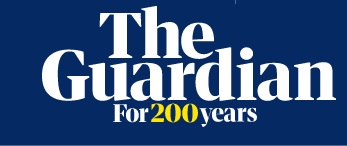Peter Pan Accounting
We Need Accountability Economics
I recently interviewed Laura Martin about the difference between restoration and conservation, the origin of harmful environmental policies, and the importance of accountability in policy design, for the bridge to a sustainable world is built with humility and care.
Accountability is antithetical to the backbone of policy which relies upon offsetting harm to justify its continuation. Offsetting is spineless. It’s a mirage designed to give the illusion of progress towards a goal that would satisfy public concern; the promise of an oasis on the horizon when all around us turns to dust.
Offsetting carbon emissions or biodiversity loss or pollution or any of these desperately harmful actions—and we must see them as actions, not merely results of progress!—invalidates the harm caused, thrusting it into the path of someone else, somewhere else. Offsetting pretends that material reality can be negated by accounting tricks. Offsetting implies that harm can be reduced to a price tag. Offsetting is lauded as a solution because the people get rich off of harm and have the money to make it someone else’s problem. Offsetting works because the richest feel the harm they cause last.
Emissions are not an accidental byproduct of society, not when we know the harm they cause. We must see emissions, biodiversity loss, pollution, everything caused by industrialised, fossil-fuelled neoliberalism, as deliberate harm. Pretending otherwise creates the landscape where offsetting becomes not only feasible but understandable, offsetting the very responsibility for that harm, as if carbon dioxide is somehow bad in-and-of-itself but the decision to continue emitting is somehow value-neutral. Bullshit. Offsets do nothing more than offset our collective duty of care, thus enabling more harm.
Policies designed around accountability would change everything. We would see reparations paid to communities who suffered desperately under slavery and continued systemic racism, loss and damages paid to countries in the majority world who are the least responsible for the breakdown of earth systems but feeling its impact first. We would see a real living wage and free education and social housing. We would see states that understand they are responsible for the material conditions which permit a fraction of the population to extort the natural world and their fellow humans to enrich their own pockets. Accountability would demand those states stop pretending blame lies with the free market.
Accountability policies, like restoration, demand we see the reality of our actions and take measures to stop. For this is, truly, what we have to do: stop the harm, take care, slow down. No one person is responsible for where we are today and the system which drives perverse incentives and makes harm profitable. But we are all responsible for our environment and our relationships. We are all responsible for doing better by one another. Policies of accountability allow us to take responsibility where offsetting encourages us to reject responsibility.
Offsetting and conservation turns the world into ledgers with which accountants can balance books and swell bank accounts. Our world is dominated by accounting hegemony which reduces morality to numbers which can then be traded for profit. This is the story told by our accounts which reveal our debt to the natural world. Policy-makers should know that debts demand repayment. But we live in a world where even governments survive by indebting future generations. The accountant who signed off on this? Peter Pan.
We have a duty of care and a debt burden. To restore the world we must be accountable for its destruction. We must pay back in full what we have taken—and nature doesn’t take cash or card.
Cover photo: PLANET CRITICAL





